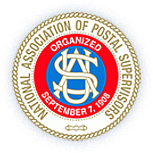Senate Committee Approves Postal Reform Measure
 A Senate panel on Thursday approved sweeping bipartisan legislation that would overhaul Postal Service finances and operations, as well as broaden the personnel appeal rights of non-supervisory managerial employees.
A Senate panel on Thursday approved sweeping bipartisan legislation that would overhaul Postal Service finances and operations, as well as broaden the personnel appeal rights of non-supervisory managerial employees.
By a 9-1 vote, the Senate Homeland Security and Governmental Affairs Committee approved a substitute version of S. 1486, the Postal Reform Act, offered by Sen. Tom Carper (D-DE) and Sen. Tom Coburn (R-OK). The measure now goes to the full Senate for approval.
Today’s Senate committee action represents a substantial step forward for the Postal Service, postal customers and NAPS members. While further changes could be made on the Senate floor, the legislation represents marked improvement over a House postal reform bill approved in committee last July. That measure, H.R. 2748, introduced by Rep. Darrell Issa (R-CA), still awaits a House floor vote.What the Senate Bill Will Do
The postal reform bill approved by the Senate committee on Thursday will provide greater financial stability to the Postal Service through a series of measures designed to increase revenues and achieve savings. It will reset the USPS retiree health pre-funding schedule to a more affordable 40-year arrangement. It will provide the Postal Service with greater rate flexibility to collect more postage, as well as permit the refund to the Postal Service of overpaid CSRS and FERS monies. It also will authorize the Postal Service to establish an exclusive health plan for postal employees and retirees. The integration of health plan benefits with Medicare coverage under that plan will provide the potential for large savings.
Also, the Senate measure will require the Postal Service to maintain current delivery service standards for the next two years and prohibit the Postal Service from closing or consolidating mail processing facilities during the same period. It will permit the Postal Service to move to five-day delivery only when total mail volume drops for four consecutive quarters below 140 billion pieces, a development projected to not occur for at least five years. (Mail volume now stands at a quarterly rate of 158 billion pieces.) There are additional provisions; a summary of the Carper-Coburn substitute bill is here.) Postal employee groups are likely to push for revision of a contentious provision, authorizing the Postal Service to renegotiate retirement benefits for newly hired employees, when the Senate bill comes to the floor.
MSPB Appeal Rights for Non-Supervisory Managerial Employees
The Committee’s action today in extending MSPB appeal rights to non-supervisory managerial employees came through an amendment, proposed by Sen. Mark Pryor (AR-D) and supported by NAPS, that grants appeal rights over adverse personnel actions to approximately 7,500 EAS employees, who currently may only appeal such actions through an internal USPS process. (Adverse actions include removals, suspensions of more than 14 days, reductions in grade or pay, and furloughs of 30 days or less.)
Postal supervisory employees and postmasters already have MSPB appeal rights over adverse actions through a 1987 law, but a 1990 federal court decision excluded non-supervisory personnel from coverage. NAPS last year began work with Sen. Pryor and Rep. Gerry Connolly (D-VA) on legislation (S. 686 and H.R. 1431) that would fill the MSPB coverage gap and assure due process rights to all managerial employees, including those in professional, technical and administrative positions.
Additional Protections for Postal Management Groups
In an initial markup session of the legislation last week, the Commitee also approved a separate amendment by Sen. Mark Begich (AK-D) that both clarifies the consultative process between postal management organizations and the Postal Service, as well as the differential in rates of pay between employees in the clerk and carrier grades and supervisory and managerial personnel. The Begich amendment assures that the Postal Service may not eliminate or modify managerial and supervisory benefits outside of “pay talks” between postal management associations and the Service, which take place at times already defined by law. The amendment also applies the supervisory managerial compensation differential to both pay and benefits; currently, the differential is only applied to pay. These changes were supported by NAPS.
Guns in Post Offices and Parking Lots
Also at today’s markup, a contentious amendment by Sen. Rand Paul (R-KY) that would allow the concealed carrying of firearms inside postal facilities, was defeated. NAPS opposed the amendment. An amendment by Sen. Mark Begich (AK-D) that permits individuals, where allowed by state law, to carry firearms in their cars in USPS parking lots, was approved on a 15-0 vote.
When Will the Senate Bill Reach the Floor?
Final Senate floor action on the postal bill approved today is not expected to occur for at least several weeks, and likely after the NAPS Legislative Training Seminar, March 9-12, in Washington. That means that NAPS members once again will play an important role in educating Senate and House lawmakers and their staffs on the pressing need for constructive Congressional action on postal reform.
=====
Bruce Moyer
NAPS Counsel